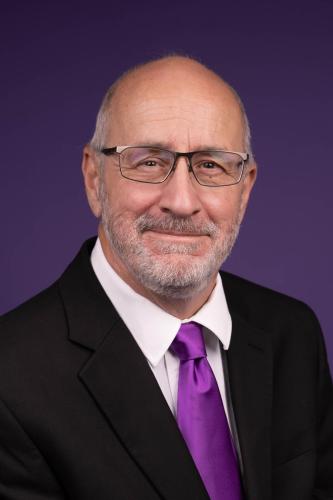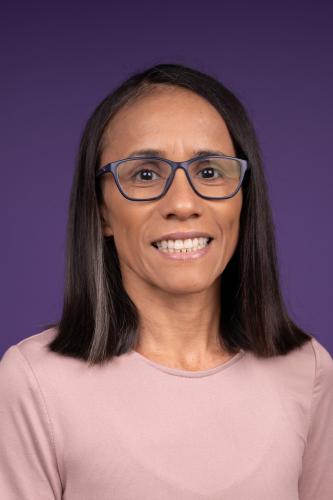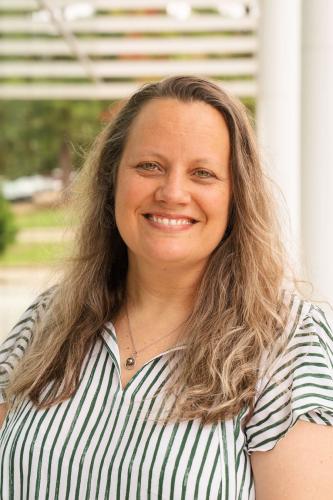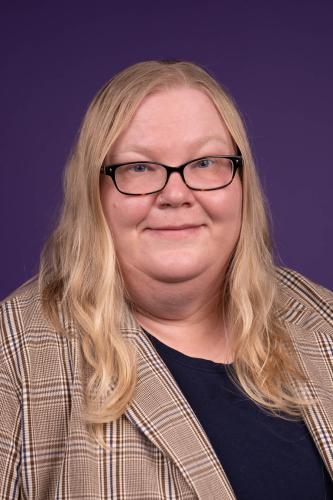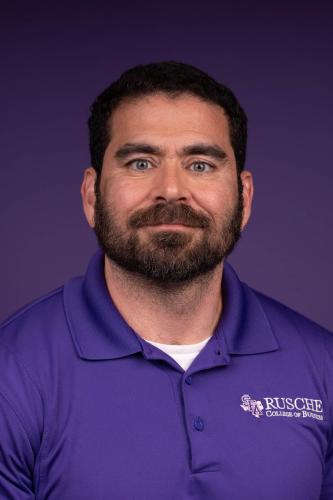NACOGDOCHES, Texas — Six Stephen F. Austin State University faculty members recently were selected to receive the university’s inaugural Scholarly Excellence Award.
The program is an opportunity to recognize outstanding faculty members for their contributions in teaching, scholarship and service as teachers. This year, two new awards were created to complement the longstanding Teaching Excellence Award — the Service Excellence Award and Scholarly Excellence Award. Each of the university’s six colleges select a faculty member to receive an award from the three categories.
“Service and scholarship have traditionally gone unrecognized at the university level, even though they represent fully half of the activities expected of faculty members,” said Dr. Chris McKenna, associate professor of business communication and legal studies and 2022-23 Faculty Senate chair who helped generate the proposal for the new awards. “Not recognizing the exceptional performers in these areas while focusing solely on teaching excellence represented an oversight that ignored many critical contributions to the SFA community.”
Each college sets its own criteria for selecting its annual award winners.
Arthur Temple College of Forestry and Agriculture
Dr. Daniel Unger, who joined SFA in 1998, is the Kenneth Nelson Distinguished Professor with specialties in geospatial science and remote sensing.
“Receiving this award is very humbling,” he said. “All I do is get up in the morning, go to work, go home and go to bed. All I have ever hoped for is to make a difference. It is very humbling to realize that your peers and colleagues recognize that you have indeed made an impact.”
Unger specializes in quantifying and qualifying natural resources using geospatial technology. His main area of expertise is using remote sensing technology, such as aerial photographs, satellite digital imagery and, more recently, drone-acquired images, to map natural resources from a distance.
He teaches introduction to geospatial science, digital image processing, introduction to digital remote sensing and land measurements.
“As an educator, I love the give and take of the academic environment where every day is different,” he said. “It keeps you alive and motivated.”
College of Liberal and Applied Arts
Dr. Elizabeth Spradley is an associate professor of communication who joined SFA as a graduate assistant in fall 2000 and rose to adjunct faculty and eventually to a tenure-track position.
“Excellence in scholarly research is an affirmation of my sacrifices to carve out blocks of time to design research projects, collect data, write and revise to publish,” she said. “This cannot happen without supportive co-authors and trusted peers willing to give feedback on your work.”
Spradley is currently editing several studies that examine health communication, specifically illness narratives, nursing simulation technologies and resilience in health care. She will soon work with two different groups on engaged communication scholarship: mothers with chronic pain and health care providers.
Spradley teaches health communication, interpersonal communication and public speaking. She has also taught classes in work-from-home communication, advanced interpersonal communication, listening, theory and teamwork.
“Many do not understand how long the publication process takes and how much grit and support are needed to persevere through round after round of editing,” Spradley said. “This award reminds me, and hopefully others, to push research forward regardless of the pace. If we give up, no one will learn from the research, and it will not lead to change.”
College of Sciences and Mathematics
Dr. Carmen Montaña-Schalk is an assistant professor of biology who joined SFA in fall 2019.
“I was humbled by receiving this award. It feels good to be recognized for my dedication to research,” she said. “To me, this award represents a commitment to continue fostering excellence in research.”
Montaña-Schalk’s research includes freshwater ecosystems spanning the western hemisphere and includes a diversity of freshwater systems, including large rivers, streams and ponds. She studies both natural and human-impacted freshwater ecosystems to investigate how environmental, historical and anthropogenic factors influence freshwater communities’ organization, food-web structure and ecosystem functioning overall.
In Texas, her research includes the historical and contemporary distribution of fish species and the conservation status of imperiled or endangered fish species. Montaña-Schalk has received funding from the Texas Parks and Wildlife Department and the Texas Comptroller Office.
Internationally, Montaña-Schalk spends part of her summer in Guyana, South America, where she collaborates with scientists at the University of Guyana to investigate the freshwater biodiversity and food web dynamics in rivers of Guyana that are impacted with different land uses. Her international research is funded by the National Science Foundation through the NSF International Research Experience for Students Program.
“Doing research while also being able to train the next generation of ecologists has been a passion of mine,” she said. “I am grateful to have great collaborators and excellent students. Many of my collaborators for my research projects are my own undergraduate or graduate students; and in addition to conducting research, a large part of collaborating with them is mentoring.”
James I. Perkins College of Education
Dr. Heather Olson Beal is a professor of education studies who joined SFA in 2008.
“I was thrilled to receive this award for the Perkins College of Education because the scholarly work I do is an important part of my professional identity,” she said. “There are many fine scholars in our college, some of whom I have had the privilege of working with on research projects, so I am proud and humbled to represent our college in this capacity.”
Olson Beal researches the experiences of academic mothers in institutions of higher education, school choice policies, and language learning in schools. She will also be conducting research focusing on SFA’s Reaching All Individuals and Communities to Establish Success in Language Learning, known as Project Raíces, which was made possible through a U.S. Department of Education National Professional Development grant.
Olson Beal teaches sociocultural and historic perspectives in American education and courses covering the connection between school, family and community engagement and educational policy and advocacy.
“It is a privilege that one of the duties associated with my job as a faculty member includes conducting research,” she said. “Not everyone gets to tussle with big ideas and questions as part of their job.”
Micky Elliott College of Fine Arts
Dr. Inga Meier is an associate professor of theatre and dance who joined SFA in 2015.
“Receiving this award is a huge honor and enormously appreciated,” she said. “I was more than a little shocked.”
Meier’s research examines the 9/11 moment, from the morning of 9/11 to the 2016 election, through performance, memorialization and historiography. She teaches theatre appreciation, play analysis, advanced play analysis, film and culture, history of cinema, dramaturgy, queer performance, theatre history, and the study abroad course, “Shakespeare in London.”
Meier is passionate about watching students develop their interests, while growing and developing the tools to explore those interests.
Nelson Rusche College of Business
Dr. Justin Blount is an associate professor of business communication and legal studies who joined SFA in 2013.
“It is always flattering to be recognized for your research,” he said. “I was pleased to learn of the award.”
Blount researches the area of business law, covering corporate governance, ethics and financial regulation. He teaches business law, business, ethics and society, employment law, and negotiation and dispute resolution.
He says what excites him most about teaching is helping students become better critical thinkers to learn how to think for themselves rather than only trust others.
ABOUT STEPHEN F. AUSTIN STATE UNIVERSITY
Stephen F. Austin State University, the newest member of The University of Texas System, began a century ago as a teachers’ college in Texas’ oldest town, Nacogdoches. Today, it has grown into a regional institution comprising six colleges — business, education, fine arts, forestry and agriculture, liberal and applied arts, and sciences and mathematics. Accredited by the Southern Association of Colleges and Schools, SFA enrolls approximately 11,000 students while providing the academic breadth of a state university with the personalized attention of a private school. The main campus encompasses 421 acres that include 37 academic facilities, nine residence halls, and 68 acres of recreational trails that wind through its six gardens. The university offers more than 80 bachelor’s degrees, more than 40 master’s degrees and four doctoral degrees covering more than 120 areas of study. Learn more at the SFA website.
 Axe ’Em, Jacks!
Axe ’Em, Jacks!
